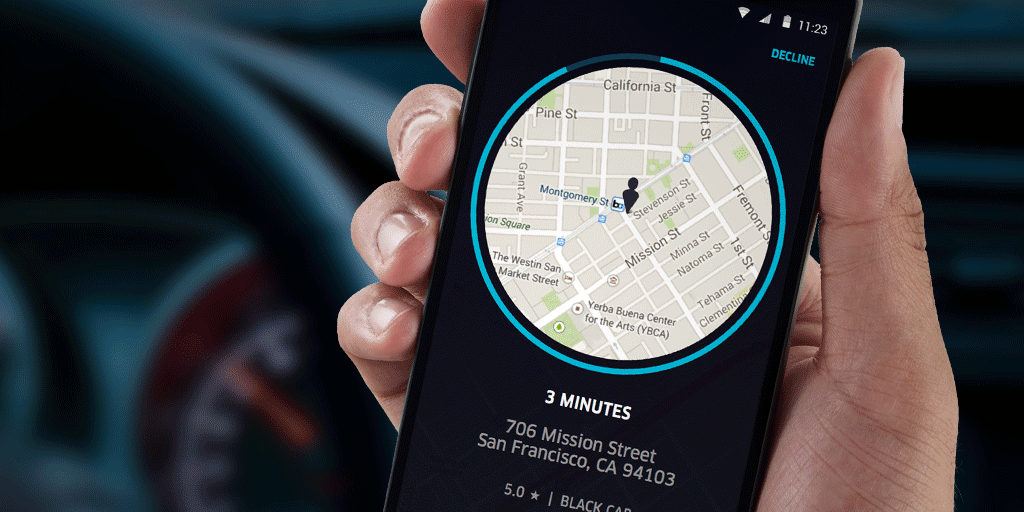Chicago smart city leaders gather for Digi.City Connects at 1871 to talk smart cities, data and how the city is navigating the digital future.
Read MoreWhen it comes to economic metrics, the United States is used to being ranked #1. In 2016, the US Gross Domestic Product (GDP) was $18.6 trillion, seconded only by China at $11.2 trillion followed by Japan, Germany and the United Kingdom. If this premier position brings you comfort, it shouldn’t last long. These numbers measure the past – the production and manufacturing of a tangible product. However, technology moves our world in a different direction. It is less about production and more about the digital economy.
Read MoreWhen you hear the term 'city government' you may think of a bureaucratic monolith instead of hotbed of innovation. But many cities--like Tampa, Denver, Phoenix and San Diego--are transforming themselves and developing new approaches to age-old urban issues while also creating opportunities for entrepreneurs.
Read MoreAmerica is full of companies who leverage their underdog status to sneak up on bigger competitors. Avis (CAR) even made a tagline out of it, "When you're only No. 2, you try harder." In an era where cities are steadily embracing private sector principles, this same adage applies. And thanks to the leveling effect of technology, the gap between historical winners and smaller, more nimble players is quickly narrowing.
Read MoreUber is synonymous with disruption and transportation. What started with ridesharing has expanded to autonomous (driverless) vehicles and even plans for flying cars. Whether you love them or loathe them, there are some important lessons you can learn from the company's journey.
Read MoreChelsea Collier
Cities large and small hold a wealth of problems for entrepreneurs to solve. With the enormous amount of services that cities are responsible for providing--public transportation, utilities, emergency services--observant founders can build businesses that will garner plenty of interest by finding ways to optimize these operations.
Read MoreWhile there may be no such thing as a free ride, thanks to Veniam, there is now free wifi on the ride. Veniam turns vehicles into mobile hotspots while their sensor technology gathers terabytes of valuable data from the physical world. Welcome to the Internet of Moving Things.
Read MoreWhen you compare a city-nation like Singapore to the United States, there are a number of differences, but one is fairly obvious: size. Singapore’s population of 5.8 million is roughly equivalent to that of Wisconsin. The total land area (278 square miles) is about the size of Lexington, Kentucky. In addition, Singapore has an inherent lack of natural resources. These two factors are very real constraints.
Read MoreOrlando’s Chief Information Officer (CIO), Rosa Akhtarkhavari, wants to save lives using connected technology. And as more urban areas across the globe are utilizing data collected from sensors, cameras and devices to become smart cities, Akhtarkhavari and the City of Orlando are working hard to build a smarter Orlando.
Read More“I am the most un-government person in the world,” says Mr. Chan Cheow Hoe who left a successful career with Citibank and Barclays to become theGovernment Chief Information Officer (CIO) and Deputy Chief Executive of Singapore’s GovTech. He oversees GovTech Hive, an innovative digital services agency created to develop deep technical capabilities within the public sector in order to meet the increasing demands of citizens and businesses.
Read MoreWhen Denver Mayor Hancock spoke at Smart City Day at SXSW this year, he voiced a commitment to establishing trust and transparency, serving residents and “meeting them where they are.” City leaders who encourage that way of thinking are already a step ahead. Adding connected technology is the next step to transforming a community into smart city.
Read MoreWhen you search online for images of a city, chances are you'll find pictures of buildings, roads, bridges and lights. It's natural to think of a city in terms of its physical infrastructure. But today, we are in the emergence of a new digital reality in which a city's invisible infrastructure is just as important as the physical.
Read MoreTAMPA — When a teacher plunked the wrong kid in his car at school pickup time a few years ago, Saravana Pat Bhava was infuriated. But the Tampa father’s anger quickly dissipated when he realized the teachers didn’t have the resources they needed to properly manage the process.
Read MoreIf you pay attention to the headlines, you would think that, as a country and as a society, we have never been more divided. Because we are humans who crave the concept of clan, it is only natural to seek experiences that exemplify how we can come together.
Read MoreHalf of the world's 7.5 billion people are connected to the Internet and we are well on track to hit 50 billion devices by 2020. Yet with all of this activity, there are still many missed opportunities to seamlessly make connected things work for people. As the Internet of Things (IoT) continues to emerge, the answer may be right in the middle of our daily existence--in the workplace.
Read MoreBig data is big business--The technology and services market is estimated to reach $58.9 billion in 2020, making today's fervor to collect, interpret and share or re-sell data reminiscent of the Gold Rush era. The challenge is that the massive amounts of data available are not linked nor do they ascribe to a standard format which means they can't be easily shared or interpreted. Incredible insights that can have profound impact are locked away in a cage of inefficiency. If you've ever tried to overlay the results of your own survey with publicly available data like the US Census, you'll understand the frustration.
Read More



















